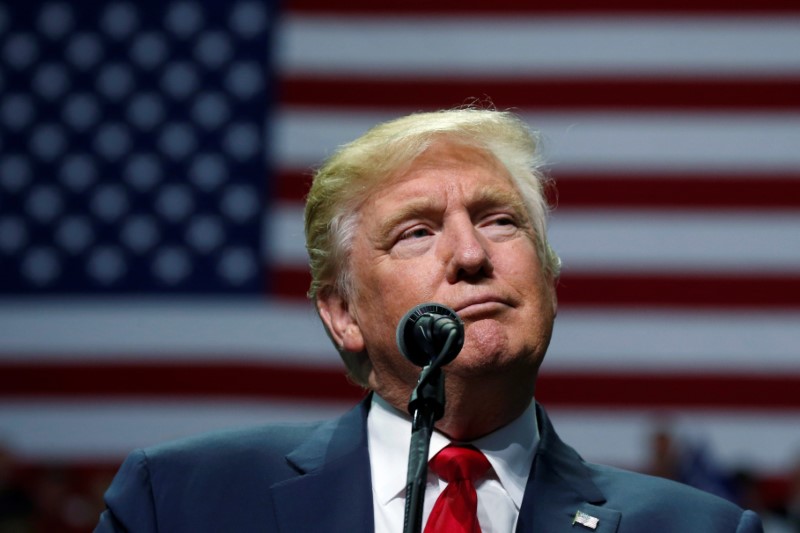(Bloomberg Opinion) -- When it comes to trade with China, it often seems that Donald Trump is his own worst enemy. Unilaterally raising tariffs, as Trump is threatening, is akin to punishing U.S. consumers for China’s misbehavior.
Most economists view lower tariffs as a win for the U.S. economy, even if China doesn’t reciprocate. Of course, they say, the world economy would be even stronger if tariffs were lowered across the board. There are a handful of economists, however, who disagree — and they can be split into two basic schools of thought, one of which might provide some hint of a method to Trump’s madness.
Call the first the neo-mercantilist school. Neo-mercantilists, such as Trump advisor Peter Navarro, see the U.S.’s trade deficit with China as inherently bad. Since imports subtract from GDP while exports add to it, Navarro argues, the U.S. economy would be stronger if it imported less and exported more.
But the strength of the U.S. economy, mainstream economists point out, is ultimately determined by the productive capacity of its workers and businesses. Limiting imports simply raises prices for U.S. consumers and business. Those higher prices lead to less consumer spending and less investment, neutralizing any GDP gains and leaving U.S. consumers worse off.
The other school of thought, call it bilateralist, offers a far more nuanced take. Bilateralists, such as John Nye of George Mason University, have a complex and detailed critique of standard free-trade thinking. One key insight, however, is that nations are best viewed not as single unified entities, but as a collection of special interests. Those special interests can put pressure on politicians that sabotage efforts to increase trade.
The goal of trade talks, according to this school, is for each side to agree to give up its particular special interests in exchange for its partners giving up theirs. Multilateral trade negotiations, such as the Trans Pacific Partnership, often do the exact opposite: Each country’s special interests invariably have veto power over the entire agreement.
Consequently, multilateral trade agreements tend to be shot through with exceptions that undercut free trade. Nye points to the European Union as an example of such an arrangement.
This pattern of “free trade for thee, but not for me” is repeated through successive rounds of trade negotiations. The result is that all the increased competition from free trade falls on the least favored sectors of the economy, while all of the protection is concentrated in the most favored sectors.
Bilateral negotiations disrupt this pattern. Negotiators can use talks as a source of external pressure to break the power of internal special interests.
In theory, this means that the short-term damage caused by Trump’s trade negotiations could actually be a source of strength: By exposing the U.S. economy to the costs of trade restrictions, the president is increasing the consensus around free trade and decreasing the relative power of protectionist special interests. Indeed, polling has shown that American’s faith in the benefits of trade is at an all-time high.
Again, bilaterialist theory is quite complex, and I’m not arguing that Trump is putting it into practice. When I asked Nye whether he believed that Trump was acting according to his theory, he demurred. Probably not, Nye said. But Trump might have “a businessman’s instinct that something is not quite right here,” he said.
The ultimate question is whether Trump’s approach will replace the status quo in trade agreements with something better. On that, Nye confessed, he had no idea. Unfortunately, for the U.S. economy and global markets, neither does anyone else.
